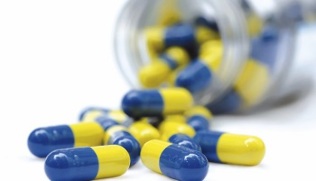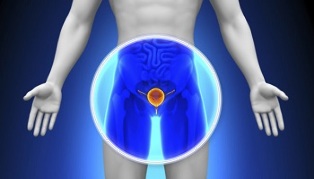
Prostatitis is an inflammatory or infectious urological disease that affects the prostate gland and can lead not only to impotence but also to infertility. According to statistics, this disease occurs in 50% of men. It is also noteworthy that the disease "is getting younger" - quite often diagnosed in young people (up to 40 years). Treatment of prostatitis, both acute and chronic, is a rather long process, but most often it is carried out with conservative measures: pills for prostatitis, physiotherapy procedures are used, and lifestyle adjustments are made.
It should also be noted that surgery for such a disease is not excluded - if drug treatment does not give the desired result or is not at all effective in a specific clinical case. In any case, the treatment program is prescribed only by a doctor on an individual basis.
Indications for use
Important!Even the presence of characteristic symptoms is not a reason to take pills for the prostate. The clinical picture may be the result of another urological or even venereal disease. Also, the symptoms can be a manifestation of prostate cancer, so taking some medications will not only be ineffective, but also dangerous. Pills for prostatitis in men should only be prescribed by a specialist after a diagnosis.
Inflammation of the prostate gland in the initial stage has mild symptoms.
The following clinical signs may indicate the development of acute prostatitis:

- painful sensations during intercourse or during urination. Interestingly, pain can also be present during erection and after intercourse;
- increased urge to urinate, often accompanied by unpleasant sensations;
- pain is present in the pubic region, groin, often radiating to the perineum and sacrum area;
- with an acute form of the disease, an increase in body temperature is possible;
- weakening of the erection, but complete impotence does not occur;
- pain present during ejaculation;
- premature ejaculation.
In chronic prostatitis, the clinical picture is almost the same, but it manifests itself in waves. In this case, the symptoms are not as pronounced as in the acute form. It is this latent course of the disease process that often leads to a delayed diagnosis, when the disease can no longer be cured.
Determine which drugs for the treatment of prostatitis in men will be most effective in each case, the doctor can only after conducting a complete diagnosis.
If prostatitis is suspected, the following laboratory and instrumental measures are performed:
- blood sampling for general and biochemical analysis;
- STD test;
- PCR test;
- urethral smear for bacteriological examination;
- transrectal ultrasound of the prostate;
- ultrasound of the genitourinary system;
- CT or MRI of the pelvic organs.

Treatment of inflammation of the prostate in each case is individual.
Note that this is only an example of a diagnostic program. The exact list of tests - both laboratory and instrumental - is determined by the doctor individually, taking into account the results of the physical examination and the collected history.
Treatment
The basis of treatment, if there is no indication for an operation, is the intake of drugs. It is impossible to unequivocally answer the question "which pills are the most effective for prostatitis", since the drugs are prescribed individually. Therefore, what worked for one patient may not be useful for another.
Treatment of prostatitis with pills involves taking drugs with the following spectrum of action:
- antibiotics;
- non-steroidal anti-inflammatory drugs;
- analgesics;
- alpha-blockers;
- immunomodulators;
- herbal tablets or homeopathic remedies.
The duration of taking the drug, the regimen and dosage are also determined by the attending physician.
First of all, the doctor prescribes antibiotic therapy.
Antibiotics
To determine which antibiotics are suitable for a patient, a bacteriological culture is performed first. In most cases, the treatment is carried out:
- tetracyclines;
- penicillins;
- fluoroquinols.
Antibiotics can not be taken alone at one's discretion, since drugs from this pharmacological group can have an extremely negative effect on the functioning of the body if they are taken incorrectly.
Side effects include:
- allergic reactions;
- complications from the functioning of the kidneys, liver;
- tinnitus, dizziness, headache;
- dermatitis;
- drowsiness, lethargy;
- nausea and vomiting.
If side effects are found, stop taking the pills and consult a doctor.
Doctors noted that pain and other symptoms of prostatitis disappear after taking antibiotics, even in cases where the infectious nature of the disease has not been determined.
For the treatment of non-bacterial prostatitis, patients are prescribed antibacterial drugs.
Non-steroidal anti-inflammatory
Preparations of this group are indispensable in the treatment of prostatitis of any form, as they relieve inflammation and at the same time the unpleasant symptoms that this pathological process causes: pain, burning, feeling of heaviness in the groin area.
But they should not be taken if there is a stomach ulcer, myasthenia gravis.
Painkillers
In this case, the drug is used for symptomatic treatment.
The attending physician also determines the safe dosage. You should not abuse such drugs, as the body quickly gets used to them and does not give the desired therapeutic effect.
Analgesics allow a man to live a fulfilling life.
Alpha blockers
Drugs of this pharmacological group are used to improve the outflow of urine and are used in almost all forms of prostatitis.
It should be noted that in most cases these drugs are used for symptomatic treatment, and not to eliminate the disease itself at its root.
In addition, homeopathic herbal remedies are also used. They are used in cases where antibiotics are not needed.
Of course, no one can prohibit taking drugs without a prescription, as many of them are sold in pharmacies without a prescription. However, you need to understand the following: Taking pills without a prescription can be dangerous to your health. Even if the symptoms disappear, the disease itself may not be eliminated. This means that the risk of chronicity of the pathological process and the development of concomitant complications increases.
At the first symptoms, you should consult a doctor and not treat at your discretion. The doctor will not only select effective pills, but also prescribe physiotherapy procedures and give general recommendations. Only such a comprehensive approach to the treatment of prostatitis will give the desired therapeutic effect.
In addition, it is necessary to carry out the prevention of such diseases and periodically (once every six months) to undergo a preventive examination by a urologist or andrologist.

























